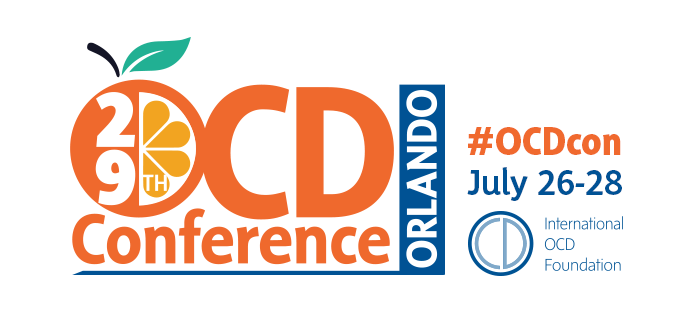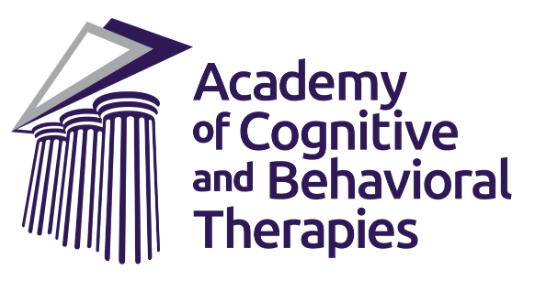
An editor for the American Counseling Association reached out to me about OCD from a Specialists’ perspective. (I was so proud of them for doing their research with multiple specialists!!). The following are excellent questions that may help inform their ACA magazine article in February 2020. Whether they utilize any of these or not, I hope they are helpful for you as they cover important questions to consider with regard to treatment.
“What presenting issues might bring these clients into counseling?”
- Intrusive thoughts! Many of my clients initially seek out counseling because they have been plagued by intrusive, unwanted thoughts. They wonder what this says about them, even though there is often some sense of it being senseless and out-of-context (we call it ego-dystonic).
- “Tipping point” behaviors- people start to notice problems in routines that begin taking too long, physical pain caused from washing, mental stress from extensive rituals (needing to “feel” a certain way, pray a certain way, walk through doorways multiple times, pick 7th item at the grocery store, and so on).
- Family, friends, and spouses are a great source of support (and pressure, at times), which can help lead to a client first coming for a session. Some of my clients (more often than not, in the pediatric population) have low motivation for themselves, and it is a concerned loved one who (hopefully lovingly, sometimes not) asks them to seek treatment.
“What are some “red flags” for counselors to listen for that might indicate OCD in a client who came in for something else (anxiety, ADHD, etc.)?”
If a counselor begins hearing the exact same things, worded or behaved in similar ways, this is a good indicator to watch out for. Many of my clients are good at exactly quoting themselves on what they’ve said before. Obsessions are repetitions on a theme; if you get good at catching the theme, you can usually spot an obsession miles away.
At its core, it’s not remarkably difficult to identify criteria in OCD (in most straightforward cases) if a counselor brushes up on what they’re looking for (dust off that DSM-5!).
Furthermore, if a client isn’t improving from certain methods (especially things like Cognitive Restructuring in CBT), this is “Getting Stuck 101” and needs further assessment. Most of my clients have had prior experience with a counselor who had no idea how to treat OCD from an evidence based way and approached the same as regular old automatic negative thoughts. This is not typically helpful.
“What counseling methods/techniques can be helpful when working with clients with obsessive behavior and/or OCD? Please explain how this/these method(s) work well for this client population. If possible, please talk about a case example (without identifying information) who worked with you and showed improvement. What were his/her presenting issues, what methods did you use and what issues did you focus on in counseling sessions?”
Exposure and Response Prevention (ERP) is the GOLD standard treatment (which is a very specific subset of CBT). It is indicated as the starting point for all OCD treatment. This is a strong statement, but it is backed by the research (the most RCTs by far) and organizations like the IOCDF, APA, and so forth. SSRI (and Clomipramine, a TCA) medications are also first-line psychopharmacological treatments, though with less effect on average than ERP. Both combined can be helpful, though may not necessarily increase the overall benefit of just ERP alone. Another first-line treatment for OCD (though not the “gold standard”) is Cognitive Therapy with Behavioral Experiments. Along with medications, it is seen as sometimes a more agreeable option for those who are hesitant to engage in exposure therapy (which intentionally and repeatedly provokes distress in order to respond differently- i.e., without compulsions).
Adjunct therapies, medications, and treatments are utilized. In the interest of brevity, research has discovered the integration of Acceptance and Commitment Therapy (ACT), Motivational Interviewing (MI), and other techniques can be helpful to provide well-rounded treatment and/or facilitate the practice of ERP.
To share a classic example [identifying factors changed to protect confidentiality- this type of case is remarkably common], one woman came to me with severely distressing thoughts about harming her children (no history of harm or abuse). She knew it was irrational, yet it felt so real to her; the more these intrusive thoughts continued to appear, the more difficult it was for her to determine her intent from confusing feelings and “impulses” to stab her kids. Upon receiving a diagnosis of OCD, I thoroughly assessed history with symptoms, and educated on the CBT model for understanding OCD treatment with a rationale for CBT and ERP. We discussed medication options, to which the client was willing to pursue with their Psychiatrist. The client was very cooperative due to a high willingness and intrinsic motivation to be able to engage at home with her two children and spouse. As can be very typical, the stress also took a toll on most every area of life, making work difficult. Once we began ERP, we started with doable exposures while learning how to stay present with triggers and distress- without compulsing. Upon successful practice of more manageable triggers on their hierarchy, they- with the incredible support of their spouse and church and loved ones- made a jump in their exposure work that began with “scripts” (imaginal exposure stating/writing distressing thoughts and quickly progressed to holding knives and stating these feared thoughts aloud) and transitioned to practices situationally at home, holding knives and saying scripts aloud (in separate rooms appropriately not in front of their young children). The incredible support around this client, along with a sense of strong purpose, helped facilitate (this is part of ACT) the integration of ERP into daily life. They would be considered recovered at this point, scoring so low on the Y-BOCS (gold-standard assessment in rating severity) that their symptoms are sub-clinical. In relapse prevention planning, they understand the chronic nature of OCD and the necessity of staying on top of their good progress, with the plan to follow-up at occasional intervals for “booster sessions.” I gain so much joy from stories like these.
“People with an OCD diagnosis may be taking medication and seeing other professionals (psychiatrists, psychologists). How could a counselor work in tandem with these other professionals? Please include a case example, if possible.”
Coordinating care can be difficult, but worth it for the best client care! Although seamless communication and record exchange between providers is likely ideal, it just rarely happens in real life. Working within the space and limits that exist, I have found that outside of those very few therapists and Psychiatrists I can have near immediate communication with, it is still very helpful and feasible to at least request/give one way communication to a provider. In complex cases, it is almost unheard of for me to not outreach another provider that is connected somehow to shared treatment concerns. I think we need to be realistic about other providers’ schedules and communicate what we can- how we can. This often looks like me leaving a Psychiatrist a voicemail after release is given- and not hearing back- but at least they have the information. It may be coordinating with another therapist who is treating other concerns. Early on, I used to welcome other counselors working at the same time on separate diagnostic concerns. Though I may work with someone now who is seeing another professional for something like, say, Depression, it is usually quite imperative that I make known to the patient and also the other provider the pitfalls of feeding compulsions through reassurance, ruminating, and so forth. This is a great opportunity for education of those who are not specialists in OCD. But OCD being as debilitating as it is (2 out of 3 people experience severe impairment at some point in their life), I need to work hard upfront to educate especially the patient about how hard they will need to work (and not undermine) their exposure therapy. Also, many other comorbidities can often improve significantly just by treating the OCD first.
“How, particularly, are counselors a “good fit” for helping clients with obsessive behaviors? How can they help people with OCD differently than a psychologist would?”
It has been my personal experience that my colleagues who are counselors (Master’s level, typically), bring to the table incredible creativity and “outside the box” thinking. Many of the hands-on resources, videos, blogs, and social media that exist to help the sufferer of OCD often come from Master’s level clinicians. I believe there is great flexibility many of my counselor colleagues have (which is a positive and a weakness all at the same time, sometimes lacking the rigors of adhering to the evidence based treatment protocols).
There are actually quite a few more Master’s level clinicians than Psychologists, and there is a great need for more clinicians offering great treatment. Counselors can help fill this gap.
“As a practitioner who specializes in working with OCD, is there anything else you would want counselors who don’t specialize in this area to know?”
For many reasons, I love work with clients who have OCD. I have found they are some of the kindest, hardest working, conscientious individuals on this planet. This is where I believe many of their personality strengths arise once moving through pathology. It is a joy every day to see recovery, growth, and maturity bloom out of suffering.
“Any main take-aways to share?”
OCD Treatment can be so rewarding! It has very effective treatments for most, very clear evidence, incredible improvement that can be witnessed in a short period of time, and there are wonderful opportunities to get invested in this world with a community of professionals, sufferers, and supporters who are incredible.
Sincerely,
~Justin K. Hughes
Those who know me know that I see people as individuals and hate to make generalizations. However, it seems to me that those suffering from OCD are among the kindest and most understanding people I have ever met.
~Jonathan Grayson, PhD








Leave a Reply